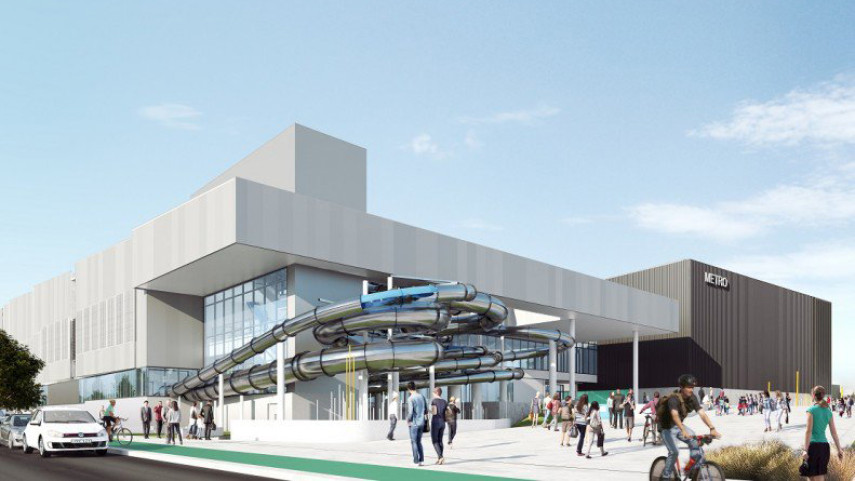
‘Waste not, want not’ in NZ-first energy flow for Metro Sports Facility

Share this story
Sewage will heat up Christchurch’s new Metro Sports Facility.
In a first for New Zealand, the country’s largest aquatic and indoor recreation venue will utilise an unlikely heat source that runs under St Asaph Street towards the wastewater treatment plant.
Ōtākaro Limited Chief Executive John Bridgman says the location of the Metro Sports Facility has made it possible to incorporate the eco-friendly wastewater heat recovery system.
“Showers, sinks, dishwashers, washing machines and even toilets all result in hot water going down the drain,” he says.
“This lifts the temperature of the major wastewater pipe running down St Asaph Street to a useful 17 degrees Celsius. With this system, we will be able to capture and recycle this otherwise wasted energy to help heat the pools and building. Part of the St Asaph Street wastewater pipe flow will be redirected into a building in the Metro Sports Facility’s car park, where the heat can be extracted through heat exchangers and used to warm the water being supplied to the facility’s heat pumps.”
First, the sewage will be “screened” to filter unwanted material and enable the flow to pass through a heat exchanger. By using the exchanger, there is no contact between the sewage and the pool.
The wastewater heat recovery system, which is being supplied by Melbourne-based Environmental Technology Solutions, will cost about $1.5 million to install.
Environmental Technology Solutions Director Rick Edwards says the project will provide significant benefits to Christchurch “by reusing waste heat energy that has already been paid for to produce about 3500kW of energy per annum for heating at the Metro Sports Facility, which is the equivalent of powering up to 2000 homes per day”.
Christchurch City Council Head of Recreation, Sports and Events Nigel Cox says that the innovative heating system is a major step towards removing the word “waste” from wastewater and instead recognising a valuable energy resource.
“It’s great to see Christchurch leading the way with alternative energy solutions, and the Council is grateful for the grant towards the project from the Energy Efficiency and Conservation Authority,” he says.
“To be able to make efficient use of our wastewater for the benefit of the city is an exciting new string to our bow and a really smart investment. The wastewater heat recovery system will save $100,000 a year compared to groundwater-sourced heating and help lower greenhouse gas emissions.”.
Sewage water is between five degrees and nine degrees warmer than groundwater, so the heat from sewage water is more efficient than that from a cooler groundwater-sourced system.
“The Metro Sports Facility requires a great deal of heating, so the St Asaph Street pipe is in an ideal area by the venue to help deliver a very clever energy system. Council staff have also organised a map that shows the ‘hotspots’, and how much heat is potentially available at other locations with this renewable energy source,” Mr Cox says.
There will be some traffic disruption in St Asaph Street (between Hagley Avenue and Antigua Street) while the system is installed next year.
